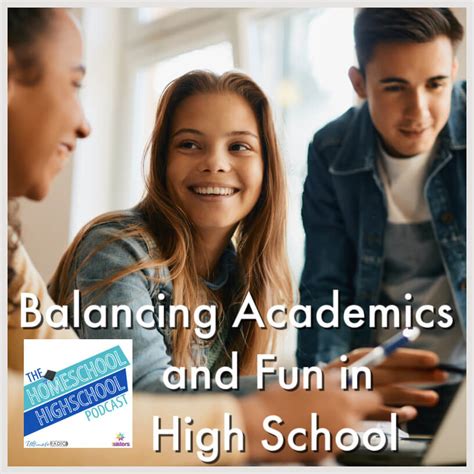Introduction: The Allure of Escapism

In the monotonous halls of academia, the allure of escapism beckons students to seek solace beyond the confines of classrooms. Some succumb to the temptation of getting high and skipping class, believing it to be a harmless act of rebellion or a much-needed respite from the rigors of intellectual pursuit. However, this path is fraught with potential pitfalls that can have dire consequences for their academic, professional, and personal lives.
The Dangers of Drug Use and Class Absenteeism
Cognitive Impairment:
Cannabis, the most commonly used illicit drug among college students, has been shown to impair short-term memory, attention, and problem-solving abilities. Prolonged use can lead to cognitive deficits that hinder academic performance and reduce the likelihood of success.
According to a study published in the Journal of the American Medical Association, regular cannabis use was associated with a 10% decrease in standardized test scores in high school students.
Health Risks:
Smoking marijuana can damage the lungs and lead to respiratory problems, including chronic bronchitis and lung cancer. It can also increase the risk of heart disease and stroke.
The Centers for Disease Control and Prevention (CDC) reports that cannabis use has been linked to an increased risk of cardiovascular disease, including heart attack and stroke.
Psychological Effects:
Frequent cannabis use can trigger anxiety, depression, and psychosis, particularly in young people and those with a family history of mental illness. It can also lead to addiction and withdrawal symptoms, which further disrupt academic and social functioning.
The National Institute on Drug Abuse (NIDA) estimates that approximately 9% of cannabis users will develop a cannabis use disorder, often marked by compulsive use and negative consequences.
Academic Consequences of Skipping Class
Loss of Learning Material:
Class attendance is crucial for acquiring knowledge and skills. Skipping class results in missed lectures, discussions, and group work, which can create gaps in understanding and make catching up difficult.
According to a study published in Educational Psychology, students who skipped classes had significantly lower final grades than those who attended regularly.
Reduced Engagement:
Attending class provides opportunities for interaction with professors and peers, fosters critical thinking, and promotes active learning. Skipping class disrupts this process and leads to decreased engagement and motivation.
Increased Risk of Course Failure:
Absence from class accumulates and can eventually jeopardize a student’s grade. Skipping too many classes can result in course failure, which can have serious implications for academic progress and graduation.
The National Survey of Student Engagement (NSSE) reports that students who skip classes are more likely to receive failing grades and experience academic difficulty.
Common Mistakes to Avoid
Assuming It’s Not a Big Deal:
Skipping class even occasionally sends the message that it’s acceptable to prioritize other activities over academics. This can lead to a slippery slope of complacency and decreased effort.
Relying on Class Notes:
Assuming that class notes from peers are sufficient is a dangerous mistake. Class notes are often incomplete or inaccurate, and they can’t replace the interactive learning experience provided by attending class.
Procrastinating Makeup Work:
Skipping class often leads to a backlog of missed work. Procrastinating on makeup work can add to stress and make it more difficult to catch up with the course material.
Using Skipping Class as a Coping Mechanism for Stress:
While it’s understandable to seek relief from stress, skipping class is not a healthy or effective coping mechanism. It only compounds problems and creates additional stress.
Overcoming the Temptation of Escapism
Identification of Underlying Motivations:
Understanding the reasons behind your desire to get high or skip class can help you develop strategies to address them and find healthier alternatives.
Peer Support and Accountability:
Surround yourself with individuals who support your academic goals and hold you accountable for attending class and completing assignments.
Development of Healthy Coping Mechanisms:
Identify alternative ways to manage stress, such as exercise, meditation, or spending time in nature.
Seeking Professional Help:
If you struggle to overcome the temptation to get high or skip class on your own, consider seeking professional help from a counselor or therapist. They can provide support, guidance, and coping mechanisms to help you achieve your academic goals.
Alternatives to Escapism
Mindfulness and Meditation:
Mindfulness techniques can help reduce stress, improve focus, and increase motivation.
Physical Activity:
Exercise releases endorphins, which have mood-boosting effects and can alleviate stress.
Social Involvement:
Engaging in extracurricular activities or volunteering can provide a sense of purpose, fulfillment, and social connection.
Creative Pursuits:
Expressing yourself through art, music, or writing can be a therapeutic outlet for pent-up emotions.
Motivations for Success
Intrinsic Motivation:
Identifying your personal reasons for pursuing your education, such as intellectual curiosity or career aspirations, can provide intrinsic motivation to attend class and stay focused.
Extrinsic Motivation:
Setting short-term goals, such as improving your grades or earning a scholarship, can provide extrinsic motivation to prioritize academics.
Vision of the Future:
Envisioning the successful person you want to become and the positive impact you can make on the world can inspire you to stay motivated and disciplined.
Conclusion: Embracing Responsibility
The path of getting high and skipping class is ultimately a path to self-sabotage. It may provide temporary relief but will inevitably lead to academic, professional, and personal consequences. Embracing responsibility, seeking healthier coping mechanisms, and finding intrinsic motivation are key to achieving a balanced and fulfilling life.
Remember, you have the power to control your choices. Choose the path of success and don’t let escapism derail your dreams.
